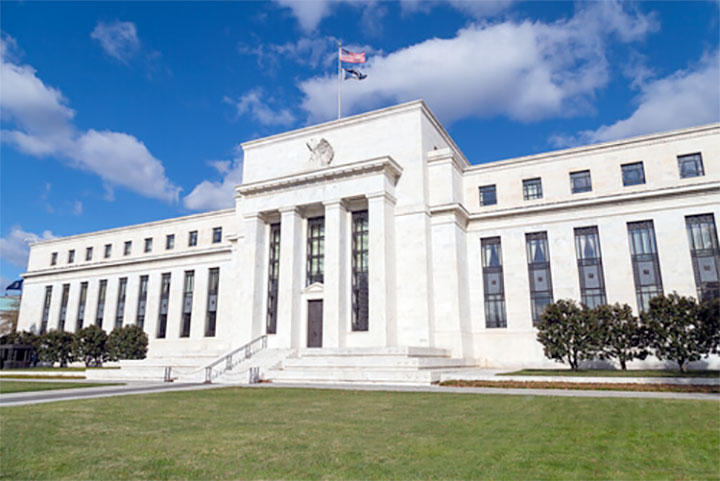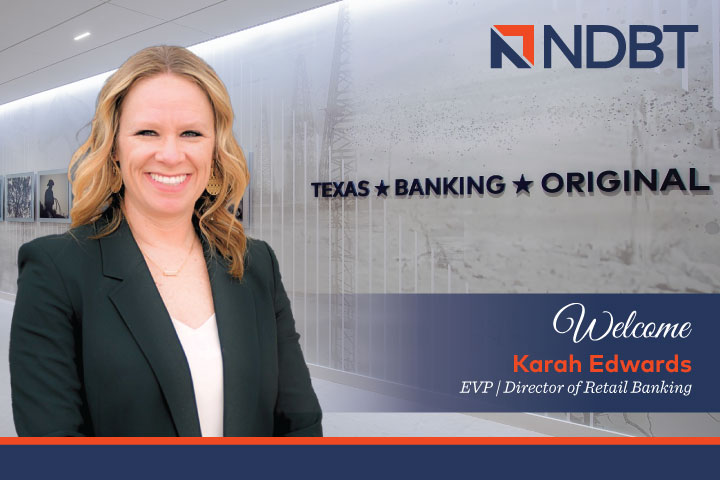The Federal Reserve‘s 12-member Federal Open Market Committee (FOMC) took action on Wednesday, May 4th to increase the Fed Funds Rate by 50 basis points and reduce the Federal Reserve‘s bond holdings. The Fed Funds Rate is the interest rate at which overnight funds are lent between banks. The increase to the Fed Funds Rate was a response by the FOMC to what most of the population is already experiencing, higher prices. This response is one of the tools the Federal Reserve uses to influence the direction of interest rates in the US economy. The ½% increase in the Fed Funds rate was the largest move since 2000, and suggests the Fed is serious about bringing inflation under control.
NDBT is committed to helping you successfully navigate your way through all market conditions. Our leadership offers the following points to assist in understanding how the recent action by the Fed will affect your financial interests:
James L. Tipton
Chief Credit Officer
When it comes to loans, the biggest impact on rising rates will be on the borrower‘s purchasing power. For example, as rates have been historically low, buyers have been able to pay more for a home because the cost of interest has been less. With interest rates doubling, if you are looking to purchase a home, a $500,000 loan over 30 years would cost about $760 more monthly in interest alone. Coupling this impact with the significant increase in home values over the past year, the rising interest rates could negatively impact the overall market.
Allen Hudson
Chief Lending Officer
As the rate cycle begins its upward journey, banks‘ cost of borrowing will increase in the form of paying depositors more for the use of the funds in their checking and savings accounts. Banks generate revenue by investing deposits in loans at a higher rate (spread) than what is being paid to the depositor, consequently, banks will need to increase their loan rates as they gradually pay more for deposits. As with most things, supply and demand for money will also have an influence over the pace at which interest rates increase.
Now that the Federal Reserve has initiated its series of increases, consumers will begin to see over time this influence the cost of new auto loans, credit cards, home equity borrowing, etc. Home mortgage rates have already experienced large percentage increases in a short period of time, as a result of the bond market trying to anticipate the Federal Reserves‘ moves. On the flip side, savers will begin to see a return on their cash savings, as opposed to consumers having to pay more to borrow. While debt can be a useful tool when used prudently, it also becomes riskier as the cost of debt increases. Always consult with a lender who has your best interest in mind when considering utilizing debt.
Glenn Henry
Vice Chairman & Chief Financial Officer
Most credit card interest rates are tied to the prime lending rate making the interest expense on balances carried on credit cards higher. The reduction of the Federal Reserve‘s bond holdings can be expected to reduce demand for longer-term bonds, increasing long-term interest rates to make the bonds more attractive. With the expectation of this move by the FOMC, the long-term rates have been increasing for the past several months. Higher long-term rates affect the affordability of housing by increasing mortgage and rent payments.
The FOMC is attempting to get inflation back to around 2%, which they believe is an acceptable level. Inflation is measured by prices. Cost and price increases are not always the same, if you purchase a good or service with borrowed money the price can stay the same, but adding interest increases the cost. If goods and services are purchased with borrowed money (loans or credit), the higher interest rates will continue to push the cost of those goods and services up to where demand falls, and price increases slow to a stop. Once the price increases stop, interest rates can be lowered again to bring affordability and demand back.










